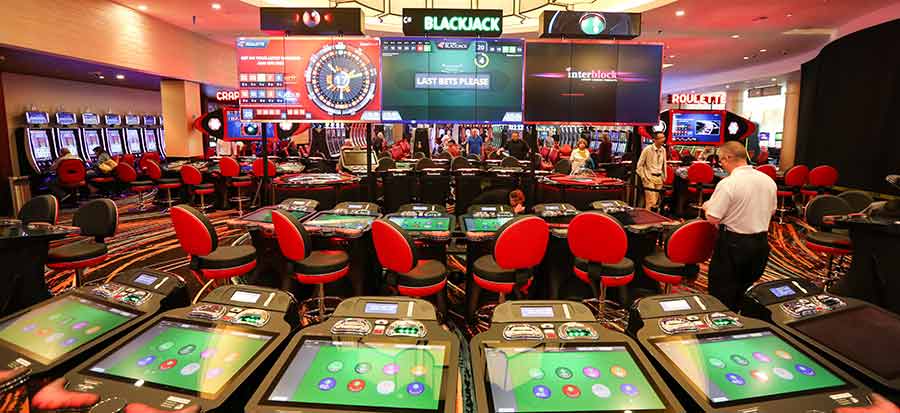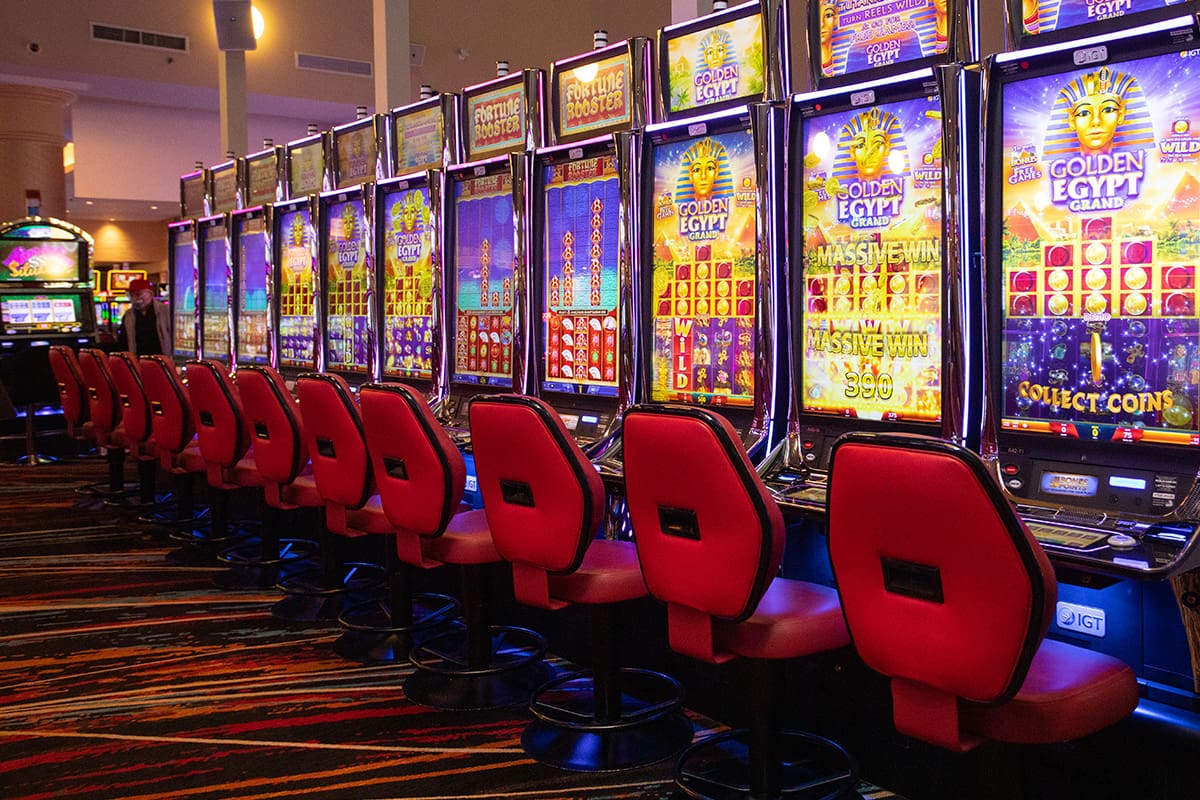The future of online gaming is on the brink of a technological renaissance, and as gaming continues to evolve, it is clear that it will have an even greater impact on society in the years to come. Along with the ever-expanding opportunities for entertainment, the gaming industry is becoming a critical component of various sectors, influencing fields such as healthcare, education, business, and even mental health. As the boundaries between gaming, virtual worlds, and real-life experiences continue to dissolve, the implications of these developments will reverberate far beyond just players and developers.
A key area of growth lies in the evolution of immersive gaming experiences, which is being driven by the increasing availability and advancement of virtual and augmented reality (VR and AR). These technologies have already demonstrated their ability to transport players into digital environments, providing a sense of presence that has long been missing from traditional gaming. As VR and AR continue to mature, the experiences they offer will only become more engaging and realistic. In particular, VR’s potential for creating fully immersive worlds is enormous. Players will not just control characters on a screen but will step into their digital avatars, interacting with the environment as if it were physically real. The development of haptic feedback devices, which provide physical sensations (such as touch or resistance) during gameplay, will further enhance immersion, making players feel as though they are truly part of the virtual world.
The implications for social interaction within virtual environments are profound. As VR and AR technologies improve, online gaming could become a social platform that allows people to meet and interact in virtual spaces, much like they would in the real world. Players could attend virtual concerts, participate in virtual meetups, or even host virtual dinner parties. These types of interactions will redefine how we connect with one another, transcending the limitations of geography and time zones. The potential for gaming to become a meeting place for people from all walks of life is particularly exciting in an increasingly globalized society.
Simultaneously, cross-reality experiences are becoming a key focus for both developers and tech companies. Cross-reality (XR) is a catch-all term used to describe the merging of virtual, augmented, and physical realities. The XR concept is set to revolutionize the way players interact with both the game world and the real world. In a cross-reality experience, players might move seamlessly between physical spaces and digital environments, using AR glasses or VR headsets. This could take the form of integrating digital elements into the real world, such as seeing virtual objects appear in your living room or using your real-world surroundings as part of a digital game, like Pokémon Go did. Such immersive cross-reality experiences could open up new gameplay styles and genres, combining physical activity with digital entertainment in previously unimaginable ways.
Another exciting frontier for online gaming lies in the field of artificial intelligence (AI). AI has already begun to reshape the way we play games, offering smarter NPCs, procedural storytelling, and dynamic environments. But as AI evolves, it will likely play a more integrated role in enhancing the overall gaming experience. One of the most significant advancements in this area is the development of AI-driven narratives. Traditional games often rely on predefined storylines or quests, but as AI becomes more sophisticated, it will allow game worlds to adapt u888 in real-time to a player’s actions. This could result in games with branching narratives that change based on every choice a player makes, where the story is shaped by the player’s individual personality and decisions. For example, in a role-playing game (RPG), AI could ensure that interactions with NPCs feel uniquely tailored to the player, based on the player’s previous interactions and decisions in the game.
AI could also enhance the personalization of gameplay experiences. Rather than following the same story or task every time, AI could learn from a player’s behavior and adjust the game to suit their preferences. This could mean dynamically altering levels of difficulty, presenting personalized challenges, or even suggesting new game modes or in-game items based on the player’s style of play. The more AI integrates with game design, the more games will feel alive, changing and evolving as players engage with them, creating a truly unique experience for each individual.
One aspect of online gaming that continues to expand is the growth of game streaming and cloud gaming. With cloud gaming services like Xbox Cloud Gaming (formerly Project xCloud), Google Stadia, and Nvidia GeForce Now, players can stream games directly to their devices, eliminating the need for high-end gaming hardware. This evolution makes gaming more accessible to a wider audience and helps to democratize access to advanced gaming experiences. As internet speeds improve globally, cloud gaming will likely become even more seamless, offering high-quality gaming experiences without the need for expensive consoles or gaming PCs. In the future, this could result in an environment where anyone, anywhere, can play cutting-edge games without worrying about hardware limitations.
Additionally, as cloud gaming grows in popularity, there are opportunities for a more collaborative gaming ecosystem. Rather than being restricted to a single device, players could seamlessly move between different platforms, playing with friends on PCs, consoles, or mobile devices. Cloud gaming could help eliminate the traditional “console wars” by uniting players from different ecosystems into one global gaming network. This cross-platform connectivity will not only enhance the social experience but also make it easier for developers to reach larger, more diverse audiences, as their games will be accessible to a wider array of devices.
One significant area that is set to reshape online gaming in the coming years is gaming for mental health and well-being. As the world faces an increasing number of mental health challenges, including stress, anxiety, and depression, the therapeutic potential of gaming is being explored more than ever before. Games can provide a unique form of escapism, allowing players to immerse themselves in virtual worlds where they can de-stress and explore their emotions. More recently, there has been a growing interest in games designed to address mental health directly, offering experiences specifically created to help players relax, manage anxiety, or cope with difficult emotions. These games often use elements like mindfulness exercises, relaxation techniques, and positive reinforcement to promote emotional well-being.
Virtual reality is especially powerful in this area, with VR therapy being used to treat conditions like PTSD, phobias, and anxiety disorders. Virtual environments can simulate therapeutic scenarios in a controlled setting, allowing patients to confront and manage their fears or anxieties. Games like Beat Saber and Superhot VR have been praised for their ability to provide a sense of accomplishment, mindfulness, and stress relief through physical activity and rhythm-based challenges. The future of gaming may see an increasing emphasis on using virtual worlds not just for entertainment but also as a tool for emotional regulation, personal growth, and therapeutic treatment.
Another critical aspect of the future of gaming is the development of sustainability within the gaming industry. As the environmental impact of technology becomes more of a pressing concern, developers, publishers, and gaming hardware manufacturers are turning their attention toward reducing their carbon footprint. This includes optimizing gaming hardware for energy efficiency, implementing sustainable production processes, and designing games that are energy-efficient in terms of data usage. Cloud gaming also has the potential to be more eco-friendly, as the centralized nature of cloud servers allows for optimized energy consumption compared to individual, resource-intensive gaming systems.
Looking ahead, the importance of diversity and inclusion will continue to shape the gaming industry. In recent years, there has been a growing demand for greater representation of diverse characters, narratives, and creators within the gaming space. Players want to see themselves reflected in the games they play, and developers are increasingly focusing on creating more inclusive gaming experiences. The expansion of diverse teams in game development, as well as more inclusive storylines that reflect a broader range of identities, will continue to be a major trend in the coming years. This shift toward diversity also extends to the accessibility of games, with more developers prioritizing features that allow players with disabilities to engage with and enjoy games, such as colorblind modes, subtitles, and customizable controls.
The future of online gaming is one of unprecedented opportunity. As technology continues to push the boundaries of what is possible, gaming will not only remain a form of entertainment but will increasingly influence other aspects of our lives, from education and mental health to social interaction and work. The gaming industry is poised to lead the way in creating new digital experiences that are immersive, interconnected, and socially impactful. As we look to the future, it is clear that the possibilities are limitless, and the role of gaming in society will only continue to grow in significance.…



























































































